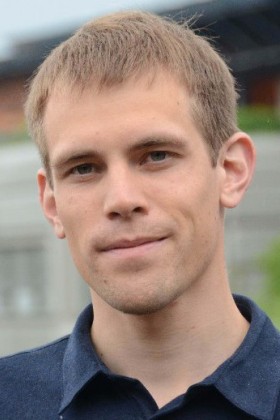
In this Sustainable Energy Seminar, Dr. Marcel Schreier, Assistant Professor of Chemical and Biological Engineering, will discuss research to transform renewable electricity into fuels through the electrochemical reduction of CO2, including the design principles for an effective catalyst based on understanding key reaction steps.
Abstract
The electrochemical reduction of CO2 to CO, methane and ethylene presents an attractive route for transforming renewable energy into fuels. However, the lack of selective, active, and inexpensive catalyst materials remains a key hurdle to widespread application of this process. Guided by mechanistic insight into the origin of electrocatalytic activity and selectivity on metal surfaces, the seminar will introduce design principles for controlling kinetic branchpoints in CO2 reduction reactions. Specifically, I will discuss how CO2 conversion to CO can be modulated by the molecular structure of cations in the electrolyte as well as the presence of atomic layer deposition (ALD) coatings on copper. I will then show how non-aqueous model systems enable a fundamental understanding of CO to hydrocarbon conversion, which can be further exploited to modulate both the rate and the ratio of ethylene and methane production.
Registration is required for this webinar through Zoom. Click here to register for this and all other webinars as part of the Sustainable Energy Seminar series.
